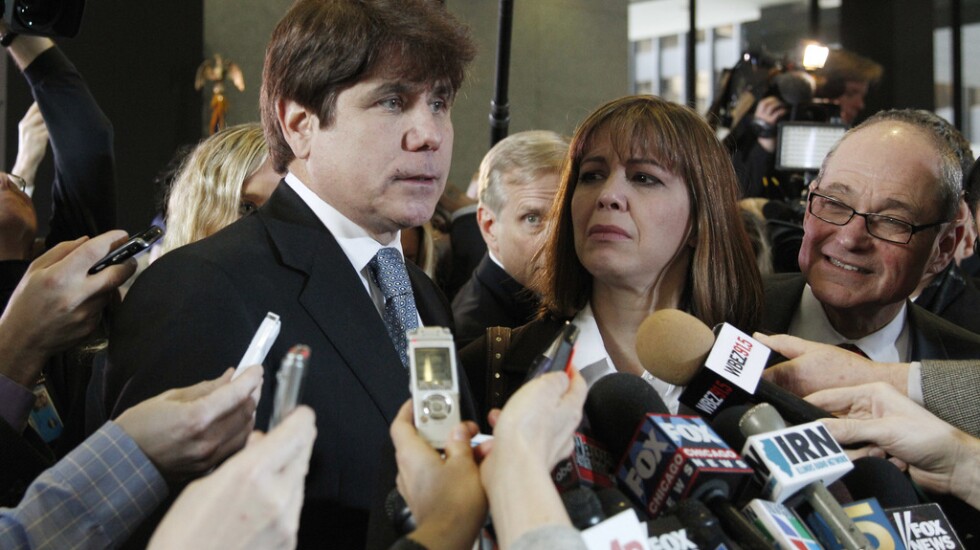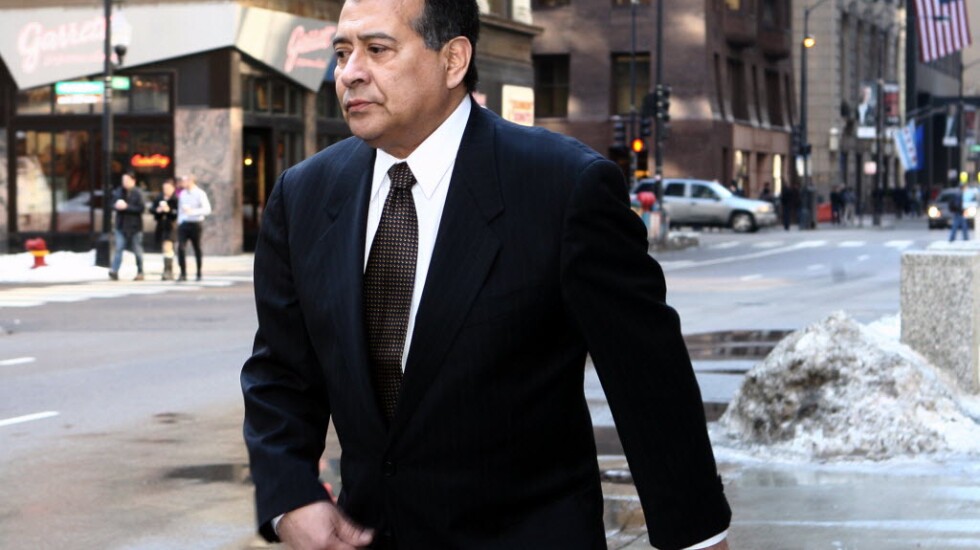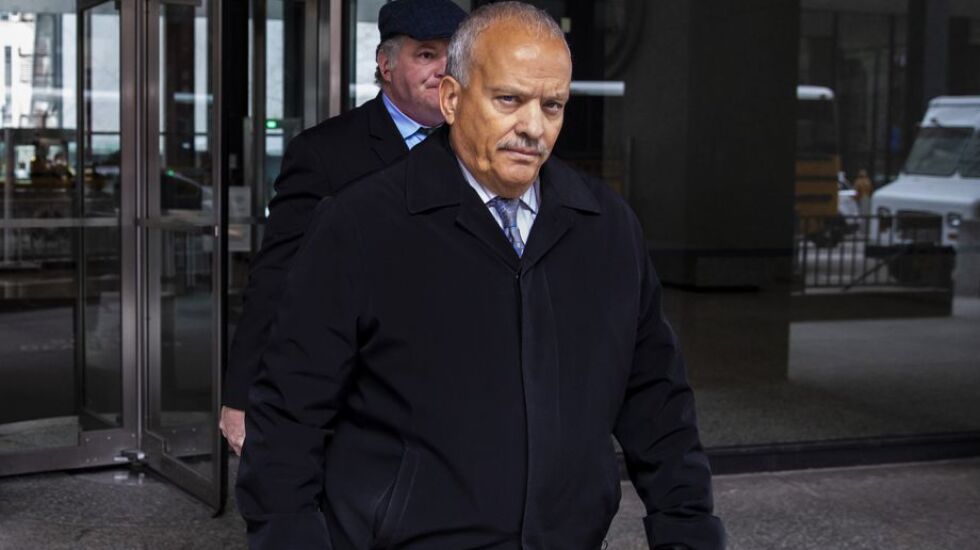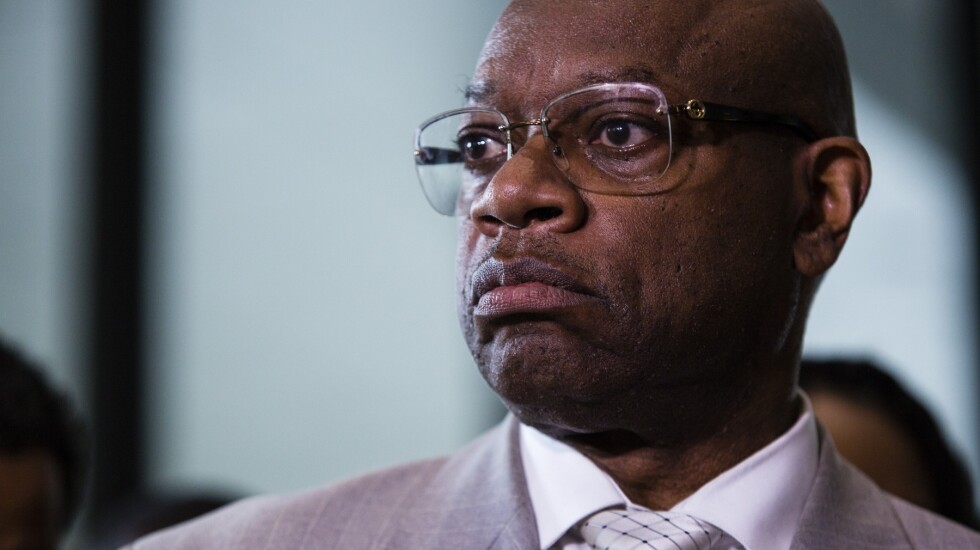When it’s finally time to sentence the longest-serving Chicago City Council member in history for racketeering, bribery and attempted extortion, federal prosecutors want a judge to send “a simple, undiluted and unequivocal warning” to government officials across the state:
If you follow in the corrupt footsteps of ex-Ald. Edward M. Burke, “You will pay dearly.”
It’s been nearly a decade since an Illinois politician as significant as Burke (14th) faced sentencing at the Dirksen Federal Courthouse. Plenty of lesser Chicago pols have been sent away, though, vexing judges inside the building. They’ve mulled the cost-benefit ratio for “rational” politicians who too often choose greed, graft and power over the public good.
Now, U.S. District Judge Virginia Kendall, one of the building’s most senior jurists, has a chance to send the loudest message since U.S. District Judge James Zagel gave 14 years to ex-Gov. Rod Blagojevich. Prosecutors want 10 years for Burke. Whatever Kendall does will add to a long-running courthouse debate about how to put a stop to corruption in Chicago — and whether that’s possible.
Burke’s attorneys hope to convince Kendall not to give him any prison time. Not only have prosecutors already made an example out of him that's led to his “staggering public fall from grace,” they argue in a court filing, but sparing Burke from going to prison “would be a powerful and just expression of mercy for an 80-year-old man in the twilight of his life who has given so much of himself to so many and for so many years."
Barring such mercy, Burke will be in for a “very humbling” experience in the months to come. That’s according to a former elected official who spent time in prison and agreed to talk about it while asking not to be identified.
When it comes to prison, he said, “Everybody’s pretty much equal in there. … You check your pride at the door.”
What to expect in court
Burke’s sentencing hearing is set to begin at 10 a.m. Monday at the downtown courthouse. Hearings generally begin on time, so Burke must make his way by then to Kendall’s 25th-floor courtroom — which used to belong to Zagel.
The former council dean often is accompanied to the building by his wife, retired Illinois Supreme Court Chief Justice Anne Burke. On such an important day, he’ll also likely be joined by other members of his family, friends and supporters.
They’ll have to make their way through security and past what’s likely to be a horde of cameras in the courthouse lobby.

Once Kendall takes the bench, the hearing will likely follow a ritual familiar to court-watchers. Kendall will need to settle a disagreement about how sentencing guidelines apply to Burke — though she’s not required to abide by them.
Prosecutors say those guidelines call for a sentence of 10 to 12½ years for Burke. His lawyers say the range is between four and five years.
Eventually, the lawyers will argue about the nature of Burke’s crime, the need to promote respect for the law and the need to deter Burke and others from committing it again. Prosecutors have said that Burke in particular needs to hear that message.
“It would be naive to think that there is anything stopping Burke, the consummate political insider with his coterie of misguided friends and well-wishers, from engaging in the same type of conduct in conjunction with public officials in the future,” they wrote in a memo to Kendall.
But the need to send a message to others — a concept known as general deterrence — also is sure to be on the judge’s mind.
Do long sentences deter corruption?
Former U.S. House Speaker Dennis Hastert was the last politician of comparable stature to leave the building with a prison sentence. A judge gave him 15 months in 2016 for a financial crime. Hastert committed that crime to cover up his past sexual abuse of teenage boys, though, distinguishing it from corruption cases like Burke’s.
That means the most recent meaningful comparison is still to Blagojevich. Zagel handed down the former governor’s harsh 14-year sentence in December 2011, five years after former Gov. George Ryan was given 6½ years for his own crimes in 2006. Zagel reaffirmed Blagojevich’s sentence in 2016 after an appellate ruling sent the case back to him.

“When it is the governor who goes bad, the fabric of Illinois is torn and disfigured and not easily or quickly repaired,” Zagel said in 2011 — words that prosecutors in Burke’s case have quoted to Kendall.
Three governors have served Illinois since Blagojevich without being indicted. That's hardly a notable event in other states. But federal judges here have still had plenty of corruption sentences to hand down in the meantime. They’ve shown their frustration along the way.
For example, U.S. District Judge Gary Feinerman sentenced former Cook County Commissioner Joseph Mario Moreno to 11 years in prison for an extortion conspiracy in 2014. The judge said the cost-benefit calculation for corrupt politicians had been “skewed.”
“The court can’t do anything about the likelihood of getting caught,” Feinerman said at the time. “That’s up to the FBI and the U.S. attorney and law enforcement. But the court can do something … about the sanction that is imposed.
“And the way to do that,” Feinerman said, “is to impose more severe penalties than have been imposed in the past.”

Years later, prosecutors routinely cited Feinerman’s words to other judges when corruption sentencings neared. More recently, though, they’ve turned to the words of U.S. District Judge Steven Seeger, who joined the bench in 2019. Seeger handed a nearly five-year prison sentence to former state Rep. Luis Arroyo for bribery in 2022. Then, in October, he gave 5½ years to businessman James Weiss for his role in the same scheme.
Seeger told Arroyo that “judges play a role” when public officials “think about the costs and benefits of corruption."
“Judges need to make sure that the costs of public corruption are high enough to deter other people from engaging in public corruption,” Seeger said then. “For whatever reason, that message isn’t getting through. I don’t know why public officials in this city and in this state aren’t hearing the message, but they need to. Public corruption isn’t worth it.”

The former elected official interviewed for this story acknowledged that “elected officials or the individuals who intend to commit the crime always look at the possible consequences.” But he suggested it’s different for people who are “just playing in the gray area.”
And not everyone working inside the federal courthouse believes in general deterrence.
“There’s just no proof that the length of the sentence has any correlation to any one person’s willingness to commit the crime,” defense attorney Christopher Grohman said in an interview.
Grohman has repeatedly found himself on the losing side of this debate at the courthouse — and even acknowledged his “zero percent” success rate. But he points to studies that find the clearer deterrent effect comes from the certainty of punishment, not the severity.
Grohman represented former Ald. Willie Cochran (20th), who in 2019 was sentenced to a year in prison for wire fraud. Grohman argued then that prison sentences have “not done anything to curb Chicago’s tidal wave of aldermanic corruption cases.”
U.S. District Judge Jorge Alonso acknowledged at Cochran’s sentencing that prison time has “not had the desired effect.” But to stop handing it out, he said, would mean to simply “give up.”

The more persuasive argument for Burke’s legal team might be his age. Sending an 80-year-old to prison for 10 years raises the real possibility that he will die there. Prosecutors have tried to short-circuit that argument, though. They say they’ve already taken his age into consideration — and would have recommended 12 years or more if he were younger.
Burke committed his crimes in his 70s, they point out.
“Burke’s age neither deterred nor prevented him from abusing his public office for personal benefit,” they told Kendall. “Burke’s age, as a result, should not be considered as a significant mitigating factor.”
What awaits Burke in prison
Given the sentiment in Chicago’s courthouse, it seems unlikely that Burke walks away from Monday’s hearing with no prison time at all. The most recent former Chicago City Council member to be sentenced there, ex-Ald. Patrick Daley Thompson (11th), was given four months behind bars for crimes valued by prosecutors at about $126,000.
Prosecutors say Burke’s crimes were worth $829,525, though that’s also disputed by Burke’s lawyers.
Still, it raises the question of where Burke might wind up. That decision will fall to the federal Bureau of Prisons and likely won’t be known until after Burke’s sentencing.

Thompson served his time at a low-security prison facility in Oxford, Wis., about 200 miles north of Chicago. It’s often favored by defendants here because of its relative proximity to the city. Former Ald. Ricardo Munoz (22nd), sentenced to about a year in prison, spent time at a minimum-security prison camp much farther away — in Duluth, Minn.
Then, there's former Ald. Edward Vrdolyak (10th), a onetime Burke ally who recently served five months of an 18-month prison sentence in his mid-80s at a federal medical center in Rochester, Minn. Vrdolyak ended up there after his lawyers raised concerns about his health — concerns that haven’t been raised as urgently about Burke.
Orientation manuals for all three facilities give a glimpse into what Burke’s new life could be like. Beds must be made by 7:30 a.m. every day — “by stretching the top blanket out full length and tucking it under the sides and bottom of the bed,” the Duluth manual says.
The Oxford manual describes a “standard work uniform” for inmates leaving the housing units on weekdays — consisting of “khaki trousers and khaki button shirt, with the shirt tail tucked in at all times.” Burke is more accustomed to pinstripe suits and fedoras.
But the facilities also tout recreational activities available to inmates. Even Rochester, the medical facility, mentions sports, table games, hobby crafts, music programs and movies.
The former elected official who spoke about his time in prison said he took advantage of such options and tried to stay positive. But that doesn’t mean it wasn’t a difficult experience. He listed the “three worst things” about it, first citing the “feeling of uselessness.”
“Not being able to help do things for my friends and family that needed my help,” he said.
Second was the loss of his freedom.
Finally, he said, there was “the food."
“It sucked.”
















